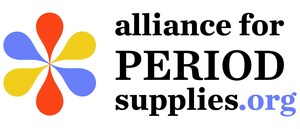Is There A Clinical Intervention For Not Having Toilet Paper?
Simple Questions Can Reveal the Best Solutions to Behaviors and Conditions Affecting Families in Need
New Basic Needs-Informed Curriculum Created to Improve Outcomes
NEW HAVEN, Conn., July 15, 2015 /PRNewswire-USNewswire/ -- With funding support from the Office of Women's Health (U.S. Department of Health and Human Services), family poverty experts at the National Diaper Bank Network and The New Haven Mental Health Outreach for MotherS (MOMS) Partnership at the Yale School of Medicine have announced the release of the first-ever Basic Needs-Informed Curriculum for social service, educational and medical professionals who provide assistance and care to poor and low-income families and children.
Photo - http://photos.prnewswire.com/prnh/20150715/237044
The new training program is designed to expand the mindset of professionals by coaching participants to consider addressing the gaps in basic needs, and other poverty-related issues, in their agency assessments, patient/client intakes, and/or delivery of medical care to children and families living in poverty. The curriculum teaches that the adoption of basic needs-informed care can result in a more effective, efficient delivery of services and supports.
Government assistance and/or low-wage jobs are often insufficient to meet the basic needs of a family or an individual. When people cannot afford things like hygiene products or transportation, their lives are disrupted in many ways.
"Social service professionals often concentrate on 'fixing' high-level problems, such as mental health and/or substance issues, encountered by their clients, patients and students," said Joanne Goldblum, executive director of the National Diaper Bank Network, and co-author of the Basic Needs-Informed Curriculum.
"Our instincts can lead us to habitually conclude that the best solutions to addressing chronic issues are referrals for more services and supports. More therapy, more parenting classes, more job skills programs. However, we can improve our assessments by understanding and applying basic needs-informed questions to problems whose root cause may be more simplicity than we realize."
Goldblum and co-author Dr. Megan V. Smith, director of the New Haven MOMS Partnership and Assistant Professor of Psychiatry and in the Child Study Center, Yale School of Medicine, believe that poverty, in itself, is sometimes the fundamental problem. Poverty disproportionately restricts access to the basic needs that families and children require to reach their full potential.
"Becoming basic needs-informed starts with asking the right questions and thinking hard about how lack of resources can affect health and wellness," said Dr. Smith. "For example, a dirty apartment, piles of unwashed laundry, or no toilet paper in a home can be identified by medical and social work professionals as signs of mental health issues and a need for clinical intervention."
However, she adds, "Sometimes the simplest solutions are the right solutions, and can be identified by asking highly personal, yet appropriate questions."
The Basic Needs-Informed Curriculum is designed to help professionals develop the mindset to overcome their own implicit biases and identify questions that can solve problems. For example upon encountering the issues outlined above, basic questions of "Do you have a vacuum, cleaning supplies, and/or laundry detergent?" or "Do you have money to buy toilet paper?" can save time and avoid unnecessary interventions by helping to identify behaviors caused by resource problems.
"My experience leads me to believe that what poor and low-income families lack most in life is access to money," said Goldblum. "Poverty is not the result of a lack of character, work ethic or bad decisions. However, poverty does lead to the lack of basic needs."
The Basic Needs-Informed Curriculum is being presented at regional and national conferences, and training workshops are being scheduled with interested organizations. For more information on the new curriculum and/or to schedule a workshop, please email [email protected].
About the MOMS Partnership
The MOMS Partnership is a collaboration of agencies across the City of New Haven that work together to support the wellbeing of mothers and families living in the city. The collaboration includes: The Diaper Bank, All Our Kin, Clifford Beers Clinic, the State of Connecticut Departments of Children & Families and Departments of Social Services, the Housing Authority of New Haven, New Haven Healthy Start, the New Haven Health Department, New Haven Public Schools, the National Diaper Bank Network, and the Yale School of Medicine. The Partnership's mission is to transform service delivery systems for mothers and children through community and neighborhood-based resources dedicated to wellness; thereby strengthening generations of families to flourish and succeed. More information is available at www.newhavenmomspartnership.org.
About the National Diaper Bank Network
The National Diaper Bank Network (NDBN) is a nationwide nonprofit dedicated to eliminating diaper need in America, by leading a national movement to safeguard one of the most basic needs of all babies and their families…access to clean, dry diapers. Founded in 2011 with the support of Huggies®, the network raises national awareness of diaper need (#DiaperNeed) and supports the development and expansion of diaper banks in communities throughout the country. Its active membership includes more than 240 diaper banks, diaper closets and food banks located in 44 states, the District of Columbia and Guam. More information on NDBN and diaper need is available at www.nationaldiaperbanknetwork.org, and on Twitter (@DiaperNetwork) and Facebook (facebook.com/NationalDiaperBankNetwork).
Media contact: Troy Moore, 203-821-7348, [email protected]
SOURCE National Diaper Bank Network
Related Links
WANT YOUR COMPANY'S NEWS FEATURED ON PRNEWSWIRE.COM?
Newsrooms &
Influencers
Digital Media
Outlets
Journalists
Opted In





Share this article